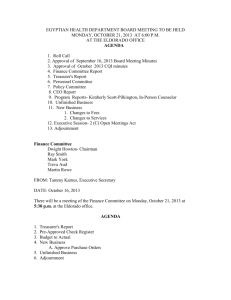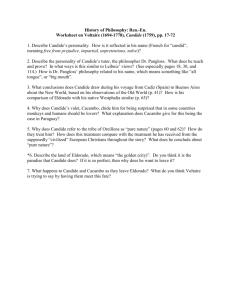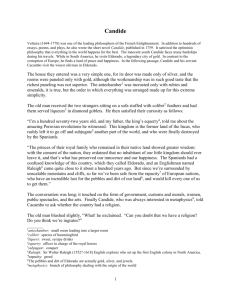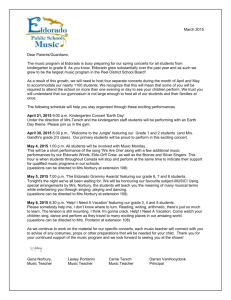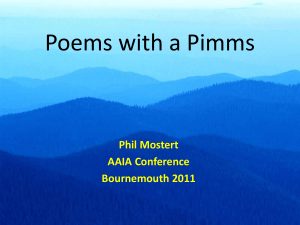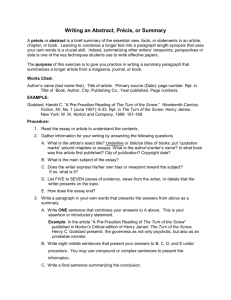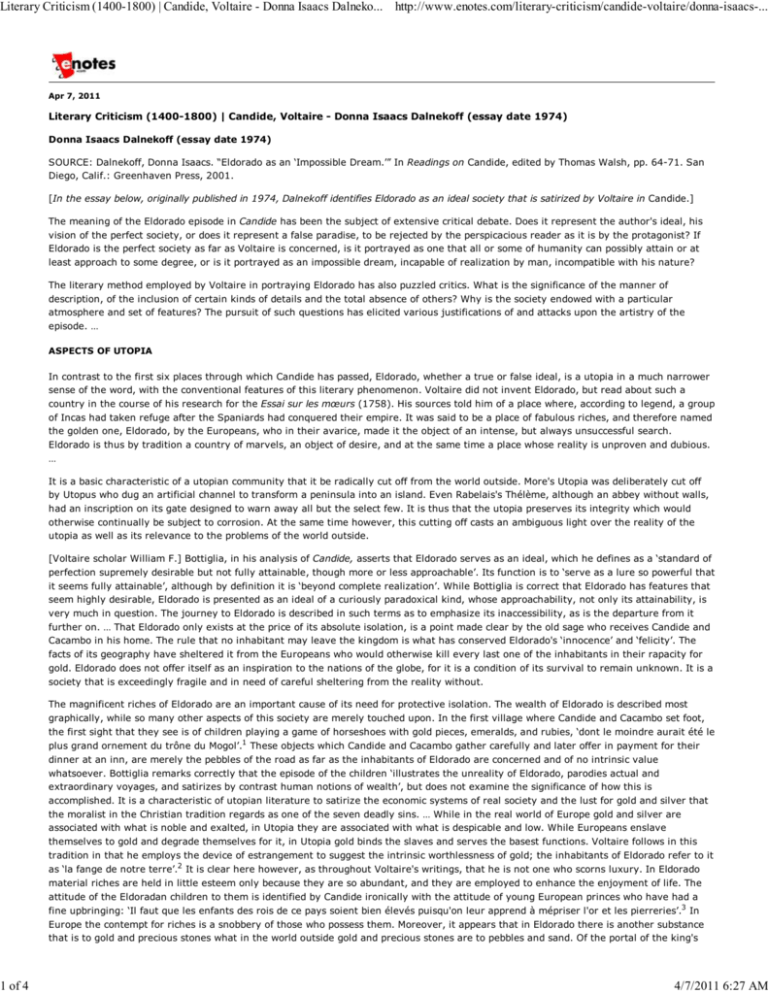
Literary Criticism (1400-1800) | Candide, Voltaire - Donna Isaacs Dalneko...
1 of 4
http://www.enotes.com/literary-criticism/candide-voltaire/donna-isaacs-...
Apr 7, 2011
Literary Criticism (1400-1800) | Candide, Voltaire - Donna Isaacs Dalnekoff (essay date 1974)
Donna Isaacs Dalnekoff (essay date 1974)
SOURCE: Dalnekoff, Donna Isaacs. “Eldorado as an ‘Impossible Dream.’” In Readings on Candide, edited by Thomas Walsh, pp. 64-71. San
Diego, Calif.: Greenhaven Press, 2001.
[In the essay below, originally published in 1974, Dalnekoff identifies Eldorado as an ideal society that is satirized by Voltaire in Candide.]
The meaning of the Eldorado episode in Candide has been the subject of extensive critical debate. Does it represent the author's ideal, his
vision of the perfect society, or does it represent a false paradise, to be rejected by the perspicacious reader as it is by the protagonist? If
Eldorado is the perfect society as far as Voltaire is concerned, is it portrayed as one that all or some of humanity can possibly attain or at
least approach to some degree, or is it portrayed as an impossible dream, incapable of realization by man, incompatible with his nature?
The literary method employed by Voltaire in portraying Eldorado has also puzzled critics. What is the significance of the manner of
description, of the inclusion of certain kinds of details and the total absence of others? Why is the society endowed with a particular
atmosphere and set of features? The pursuit of such questions has elicited various justifications of and attacks upon the artistry of the
episode. …
ASPECTS OF UTOPIA
In contrast to the first six places through which Candide has passed, Eldorado, whether a true or false ideal, is a utopia in a much narrower
sense of the word, with the conventional features of this literary phenomenon. Voltaire did not invent Eldorado, but read about such a
country in the course of his research for the Essai sur les mœurs (1758). His sources told him of a place where, according to legend, a group
of Incas had taken refuge after the Spaniards had conquered their empire. It was said to be a place of fabulous riches, and therefore named
the golden one, Eldorado, by the Europeans, who in their avarice, made it the object of an intense, but always unsuccessful search.
Eldorado is thus by tradition a country of marvels, an object of desire, and at the same time a place whose reality is unproven and dubious.
…
It is a basic characteristic of a utopian community that it be radically cut off from the world outside. More's Utopia was deliberately cut off
by Utopus who dug an artificial channel to transform a peninsula into an island. Even Rabelais's Thélème, although an abbey without walls,
had an inscription on its gate designed to warn away all but the select few. It is thus that the utopia preserves its integrity which would
otherwise continually be subject to corrosion. At the same time however, this cutting off casts an ambiguous light over the reality of the
utopia as well as its relevance to the problems of the world outside.
[Voltaire scholar William F.] Bottiglia, in his analysis of Candide, asserts that Eldorado serves as an ideal, which he defines as a ‘standard of
perfection supremely desirable but not fully attainable, though more or less approachable’. Its function is to ‘serve as a lure so powerful that
it seems fully attainable’, although by definition it is ‘beyond complete realization’. While Bottiglia is correct that Eldorado has features that
seem highly desirable, Eldorado is presented as an ideal of a curiously paradoxical kind, whose approachability, not only its attainability, is
very much in question. The journey to Eldorado is described in such terms as to emphasize its inaccessibility, as is the departure from it
further on. … That Eldorado only exists at the price of its absolute isolation, is a point made clear by the old sage who receives Candide and
Cacambo in his home. The rule that no inhabitant may leave the kingdom is what has conserved Eldorado's ‘innocence’ and ‘felicity’. The
facts of its geography have sheltered it from the Europeans who would otherwise kill every last one of the inhabitants in their rapacity for
gold. Eldorado does not offer itself as an inspiration to the nations of the globe, for it is a condition of its survival to remain unknown. It is a
society that is exceedingly fragile and in need of careful sheltering from the reality without.
The magnificent riches of Eldorado are an important cause of its need for protective isolation. The wealth of Eldorado is described most
graphically, while so many other aspects of this society are merely touched upon. In the first village where Candide and Cacambo set foot,
the first sight that they see is of children playing a game of horseshoes with gold pieces, emeralds, and rubies, ‘dont le moindre aurait été le
plus grand ornement du trône du Mogol’.1 These objects which Candide and Cacambo gather carefully and later offer in payment for their
dinner at an inn, are merely the pebbles of the road as far as the inhabitants of Eldorado are concerned and of no intrinsic value
whatsoever. Bottiglia remarks correctly that the episode of the children ‘illustrates the unreality of Eldorado, parodies actual and
extraordinary voyages, and satirizes by contrast human notions of wealth’, but does not examine the significance of how this is
accomplished. It is a characteristic of utopian literature to satirize the economic systems of real society and the lust for gold and silver that
the moralist in the Christian tradition regards as one of the seven deadly sins. … While in the real world of Europe gold and silver are
associated with what is noble and exalted, in Utopia they are associated with what is despicable and low. While Europeans enslave
themselves to gold and degrade themselves for it, in Utopia gold binds the slaves and serves the basest functions. Voltaire follows in this
tradition in that he employs the device of estrangement to suggest the intrinsic worthlessness of gold; the inhabitants of Eldorado refer to it
as ‘la fange de notre terre’.2 It is clear here however, as throughout Voltaire's writings, that he is not one who scorns luxury. In Eldorado
material riches are held in little esteem only because they are so abundant, and they are employed to enhance the enjoyment of life. The
attitude of the Eldoradan children to them is identified by Candide ironically with the attitude of young European princes who have had a
fine upbringing: ‘Il faut que les enfants des rois de ce pays soient bien élevés puisqu'on leur apprend à mépriser l'or et les pierreries’.3 In
Europe the contempt for riches is a snobbery of those who possess them. Moreover, it appears that in Eldorado there is another substance
that is to gold and precious stones what in the world outside gold and precious stones are to pebbles and sand. Of the portal of the king's
4/7/2011 6:27 AM
Literary Criticism (1400-1800) | Candide, Voltaire - Donna Isaacs Dalneko...
2 of 4
http://www.enotes.com/literary-criticism/candide-voltaire/donna-isaacs-...
palace, the narrator writes: ‘il est impossible d'exprimer quelle en était la matiére. On voit assez quelle superiorité prodigieuse elle devait
avoir sur ces cailloux et sur ce sable que nous nommons or et pierreries’.4 It is only from our perspective that the pebbles and mud of
Eldorado are valuable. The Eldoradans have their own scale of values whose bottom is our top. …
The fundamental satiric point that emerges with regard to the riches of Eldorado is that European man is such that he only considers wealth
to be valuable in as much as it raises him above his fellow man, in that its distribution is uneven. In order to savour really the luxuries of
Eldorado, Candide and Cacambo feel they must take them out into the real world. … They are not content till they can flaunt their wealth
before others and show themselves superior. Wealth can only have meaning for them and give them true pleasure in a place where it is
scarce and they are among the lucky few to possess it. There it can afford them power, put them beyond the authority of the rulers of the
multitude, and buy them the women they desire. Cagily, Cacambo requests from the king only several sheep loaded with provisions and
with what he now refers to as ‘de cailloux, et de la boue du pays’.5 Just a short while earlier, he had attempted to pay for his dinner at the
inn with the substances he now disparages.
SATIRE OF RELIGION
The nature of the religion of Eldorado is revealed through the discussion that Candide and Cacambo hold with the old sage, rather than
being demonstrated through action or event. This discussion has a typical satiric structure juxtaposing a European traveller with a member
of a foreign society. The traveller, by his naive and foolish questions and assumptions, unwittingly exposes himself and his own society to
satiric attack. The very fact that Candide brings up the subject of religion is placed in a ridiculous light by the narrator's parenthetical
explanation that it is a result of his ‘goût pour la métaphysique’,6 which in the context of the work has connotations of absurdity. Candide's
first question is whether the country has a religion, and provokes a shocked response from the old man as to how he can doubt it and
whether he takes the Eldoradans for ingrates. Through this response, atheism is implicitly attacked; it is exposed as contrary to human
reason and decency. As the discussion continues, the same is true of the multiplicity of religions, polytheism, prayer, and the existence of a
special caste of priests. Candide ingenuously exposes the perniciousness of monks in his surprised question which makes use of the device
of ironic juxtaposition: ‘Quoi! Vous n'avez point de moines qui enseignent, qui disputent, qui gouvernent, qui cabalent, et qui font brûler les
gens qui ne sont pas de leur avis’?7
The discussion of religion has been cited as evidence by those who would prove that Eldorado is Voltaire's true ideal. Voltaire the deist
offers the reader a blueprint of a model society where deism prevails. Voltaire, the enemy of religious oppression, describes a country
where tolerance is practiced. Nevertheless, the emphasis in the treatment of religion in Eldorado is negative rather than positive; its
primary function is to satirize religious concepts and practices in the world outside. … In Eldorado, men are free in theory: ‘tous les hommes
sont libres’, says the king. They have the right to leave Eldorado, but they have made vows by which they have effectively deprived
themselves of this liberty. Moreover, the faith itself of Eldorado rings hollow in its context. [Voltaire scholar] J. G. Weightman suggests that
the only way to justify the Eldorado chapters is to suppose that they are really a conscious or unconscious criticism of god. It is easy to
thank god continually and to have nothing to ask of him in Eldorado, but it is rather difficult in the world outside, with its earthquakes,
wars, and persecutions. The fortunate Eldoradans are not confronted with circumstances that might provoke a crisis in belief, while such
circumstances are shown as continually arising in the world outside. It is simplistic to see in the description of the religious beliefs and
practices of Eldorado a direct expression of what the author holds to be right.
ABSENCE OF GOVERNMENT INSTITUTIONS
The nature of the political structure of Eldorado is also cited as evidence that the society is Voltaire's ideal as to what mankind should strive
toward. Nevertheless, very few details are provided on the actual functioning of the government. The country is ruled by an enlightened
monareh who presides over an excellent table and possesses an admirable wit. … Institutions such as the court of justice, parliament, and
prison are remarkable by their absence. The inhabitants of Eldorado are evidently so virtuous that there is no need for these as there is in
the world outside where men are corrupt. Bottiglia explains that there are no courts or prisons on the grounds that the state has withered
away under the ideal rule of the beneficent monarch. Surely, however, this is to beg the question. In Eldorado, the citizens seem to have
preserved the original innocence that man in the outside world has lost. They can do without institutions that are necessary in a society of
fallen individuals. Because evil is non-existent in Eldorado, controls can be dispensed with; the dispensing with controls does not bring
about the non-existence of evil. As outside, evil exists, Eldorado cannot provide a genuine model to be striven toward. Only the material
achievements of Eldorado are given a limited potential explanation in the palace of sciences with its ten thousand foot long gallery of
instruments; the encouragement of scientific inventions has brought about the high living standard.
The institutions and practices of Eldorado—religious, economic, social, and political—serve primarily a satirical purpose, affording the reader
with indirect critical insights into the inadequacies of European institutions and practices. Eldorado is a foil to the societies through which
Candide has passed and will pass where the Inquisition imposes a reign of terror, and poverty, corruption and oppression are everywhere to
be found. Eldorado itself is more of an impossible dream world beset by paradoxes and ambiguities than the true ideal of the perfect state.
It is touched by ridicule for its remoteness from reality in a work that insists upon its confrontation and exposes evasions of it through the
retreat into metaphysical speculation. Candide and Cacambo, dazzled by what they see in Eldorado, ask each other: ‘Quel est donc ce pays
… inconnu à tout le reste de la terre, et où toute la nature est d'une espèce si différente de la nôtre’?8 Eldorado is a place where nature,
physical and human, is of another kind than in the outside world. It is much more than a matter of surface manners of the inhabitants; it is
the very essence of life that is totally different. The opinion proffered by Candide, as Pangloss's pupil, is: ‘C'est probablement le pays où tout
va bien: car il faut absolument qu'il y en ait un de cette espèce’9 (italics mine). The word for should alert the reader to the presence of
irony, for it and its synonyms have appeared a number of times already in the work as a part of ironic constructions. … In this context, the
assertion that Eldorado is the best of all possible worlds is just another proof deduced on the basis of a spurious causality or necessity, and
not to be accepted by the reader as the author's opinion on the subject.
4/7/2011 6:27 AM
Literary Criticism (1400-1800) | Candide, Voltaire - Donna Isaacs Dalneko...
3 of 4
http://www.enotes.com/literary-criticism/candide-voltaire/donna-isaacs-...
The choice of Candide and Cacambo to leave Eldorado has been variously derided by critics of the work as foolish and praised as wise. In the
context, the decision is ambiguous in its merits reflecting the ambiguous status of Eldorado itself. On the one hand, Candide and Cacambo
would seem to be the object of satire for their incapacity to settle down and remain in the excellent society they have found. The motives
given by Candide for departing are hardly worthy of commendation. His desire to be richer than all those around him is certainly deplorable.
Even his yearning for reunion with Cunégonde is stripped of much of its potential laudableness by the manner in which he speaks of it;
Cunégonde is paralleled casually with ‘quelque maîtresse en Europe’10 that Cacambo undoubtedly would like to rejoin. The additional
motives offered by the narrator, restlessness and the longing to boast of things seen in the course of travelling, are also lacking in merit.
The narrator's evaluation of their behavior is a condemnation: ‘les deux heureux résolurent de ne plus l'être’,11 and is reinforced by the
king's chiding remark: ‘Vous faites une sottise … quand on est passablement quelque part, il faut y rester.’12 On the other hand, to stay in
Eldorado would mean to escape from the evils of the real world rather than to face and deal with them. It is not in man's imperfect nature
to find happiness in such a perfect society; the best of all possible worlds is not best suited to man as he is. The best that Candide and
Cacambo can do is to take something of Eldorado back with them into the real world. Ironically, what they choose to take seems to be what
is of least spiritual value, the gold, silver, and gems that constitute material wealth in the society they have come from. Gradually, these
are lost, stolen, and wasted away till almost nothing remains. Enough is left, however, of this earth of Eldorado to purchase the farm where
in the end the characters do find a limited contentment.
It is significant that it is after Candide has passed through the utopia of Eldorado that he can at last reject the philosophy of optimism. In
approaching, Surinam, confronted with the miserable mutilated Negro, he defines it: ‘c'est la rage de soutenir que tout est bien quand on
est mal’.13 He now views optimism as a mania, the delusion of a sick mind. Hereafter, when Eldorado is invoked, it is as the exception that
proves the rule that the world is full of imperfections. After listening to the tales of woe of his would-be companions, Candide muses;
‘Certainement si tout va bien, c'est dans Eldorado, et non pas dans le reste de la terre’.14 After his bad experiences in France, Candide is
provoked to exclaim: ‘J'ai vu des ours dans mon pays; je n'ai vu des hommes que dans le Dorado’.15 Martin, the pessimist, qualifies his
assertion that God has abandoned the world to some evil being: ‘j'en excepte toujours Eldorado’.16 He attempts to prove that there is little
virtue and happiness on earth, ‘excepté peut-être dans Eldorado, où personne ne pouvait aller’.17 The Eldorado episode serves to emphasize
the sordid qualities of the places to which Candide travels in the succeeding episodes: Surinam, France, England, Venice, Constantinople,
the Propontis shores.
All of Candide militates against the existence of a best of all possible worlds. The message of the garden of the conclusion is to make the
best of the world that is through active work rather than resorting to metaphysics to prove that all that is, is for the best. The satirist is
lured by utopia although it is fundamentally at variance with his meaning and method. Voltaire resolves this dilemma and manages to use
Eldorado to further his satiric aims rather than confuse them. Eldorado embodies virtues that act to show up the contrasting shortcomings
of the world outside. Nevertheless, Eldorado is itself the object of satire; it is treated with ironic detachment and mocked as an impossible
dream.
Notes
1. The smallest of them would have been the greatest ornament on the Mogul's throne.
2. the pebbles and dirt of our land.
3. The royal children here must be very well brought up if they're taught to turn their noses up at gold and precious stones.
4. There are no words to describe what it was made of, which in itself gives some idea of just how prodigiously superior it was to the
sand and pebbles we call ‘gold’ and ‘precious stones’.
5. pebbles and some of the local dirt
6. passion for metaphysics
7. What! You mean you don't have any monks to teach and dispute and govern and intrigue and burn people to death who don't agree
with them?
8. What is this place … which is unknown to the rest of the world and where the whole nature of things is so different from ours?
9. It's probably the place where all goes well, for there absolutely must be such a place.
10. some sweetheart back in Europe
11. the two happy men resolved to be happy no longer
12. You're making a great mistake. … When one is reasonably content in a place, one ought to stay there.
13. it's a mania for insisting that all is well when things are going badly
14. One thing's certain: if all is going well, it's happening in Eldorado and not in the rest of the world.
15. I have seen bears in my own country; I have seen men only in Eldorado.
16. apart from Eldorado, that is
17. except perhaps in Eldorado, where no one can get to
4/7/2011 6:27 AM
Literary Criticism (1400-1800) | Candide, Voltaire - Donna Isaacs Dalneko...
4 of 4
http://www.enotes.com/literary-criticism/candide-voltaire/donna-isaacs-...
©2000-2011 Enotes.com Inc.
All Rights Reserved
4/7/2011 6:27 AM

